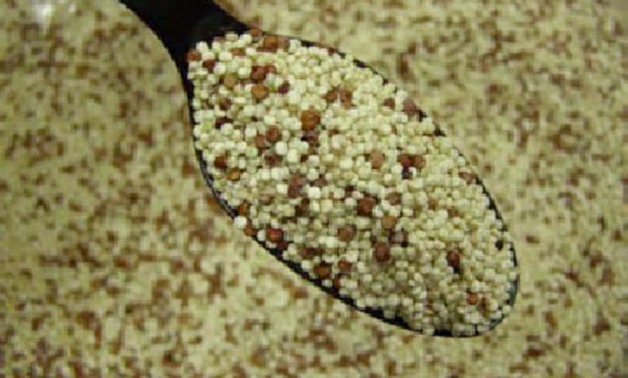
SYDNEY, Australia and the United States, two of the world's biggest wheat exporters, are racing to become mass producers of the South American - File photo/Reuters
CAIRO - 14 March 2018: As the demand for food grains becomes high due to the growing population, the government has become always on the lookout for more alternatives to ensure food security.
The ancient quinoa seed is one of those alternatives that the Ministry of Agriculture is set to expand its cultivation in Egypt in order to further boost food security given its tremendous potential.
According to the agricultural center for research, the average yield of quinoa grown in salty soil reported to be one ton per feddan. The studies also revealed that quinoa can be grown well in very harsh circumstances unlike most grains, making it steadily a cost-efficient and promising crop for the domestic grain market demands.
The under-utilized grain is also found to be high in protein, zinc, and calcium, and thus can go into the baby food industries.
For celiac patients, quinoa also stands as an alternative to wheat as it is proven to be gluten-free.
Associate Professor at Agricultural Research Center (ARC) Amr Shams said in press remarks on Wednesday that the quinoa crop has been first introduced in Egypt in 2005, and was first cultivated in Nubie’ City in Southern Sinai to test its response to the harsh weather conditions; the quinoa crop showed exceptional adaption to well drained soils.
Egypt is the world’s largest wheat importer; the country imports half of the wheat consumed annually.
About 3.6 million tons of wheat were produced in 2017 under the new pricing system approved by the Cabinet.
The new prices approached LE 555 per ardeb (roughly 150 kilograms) for a crop of 21 purity degrees, and LE 575 per ardeb for a crop of 23 purity degrees, the minister of agriculture stated.

Comments
Leave a Comment